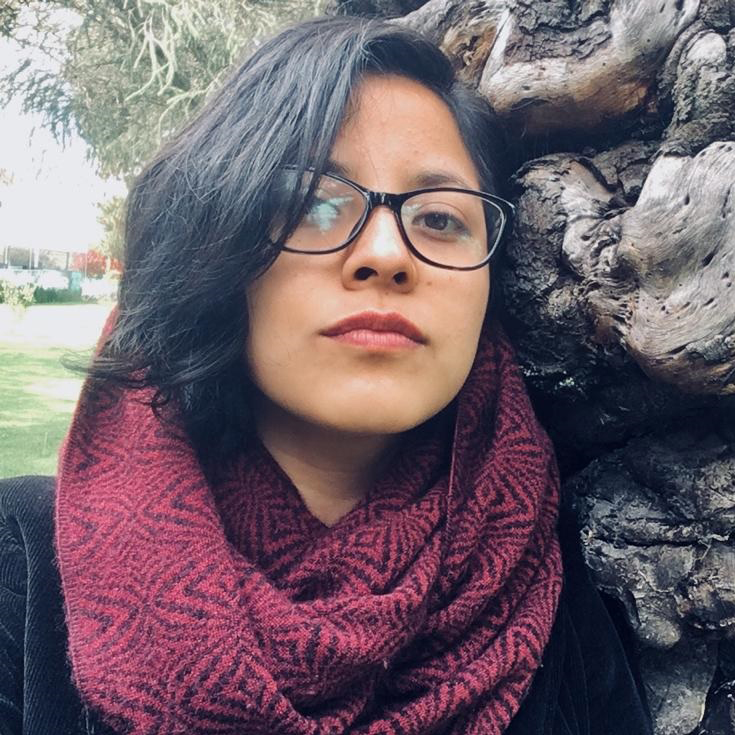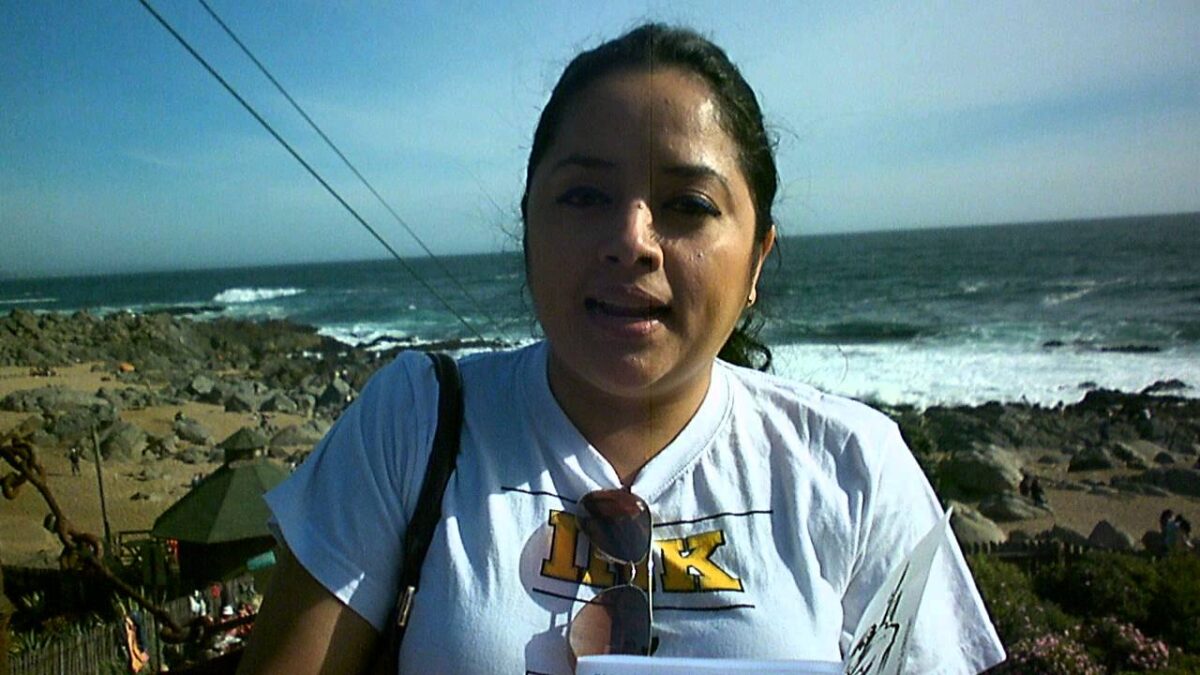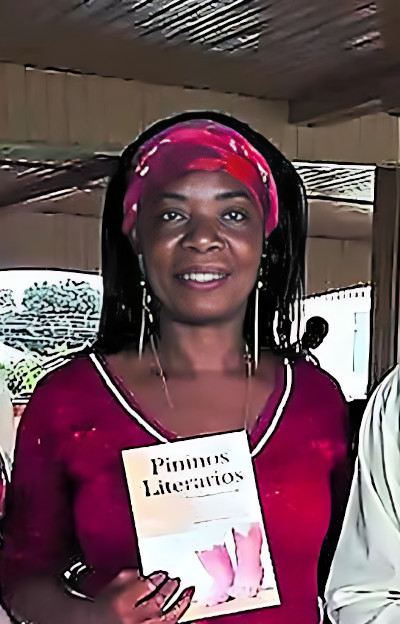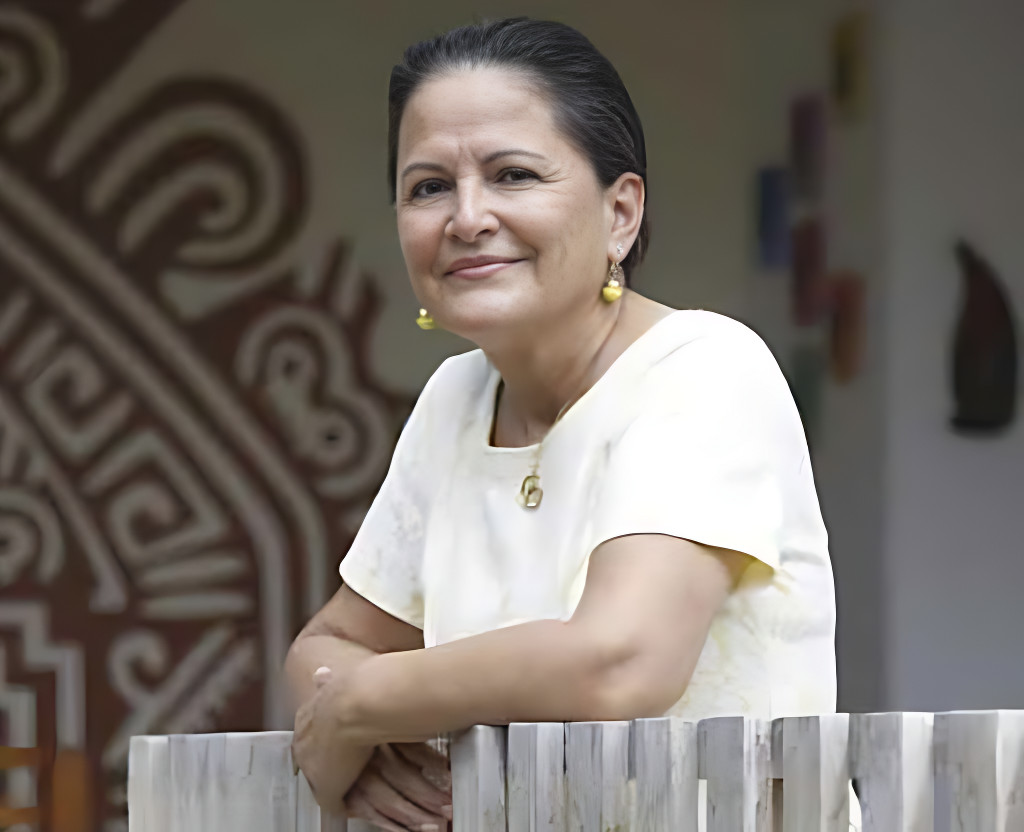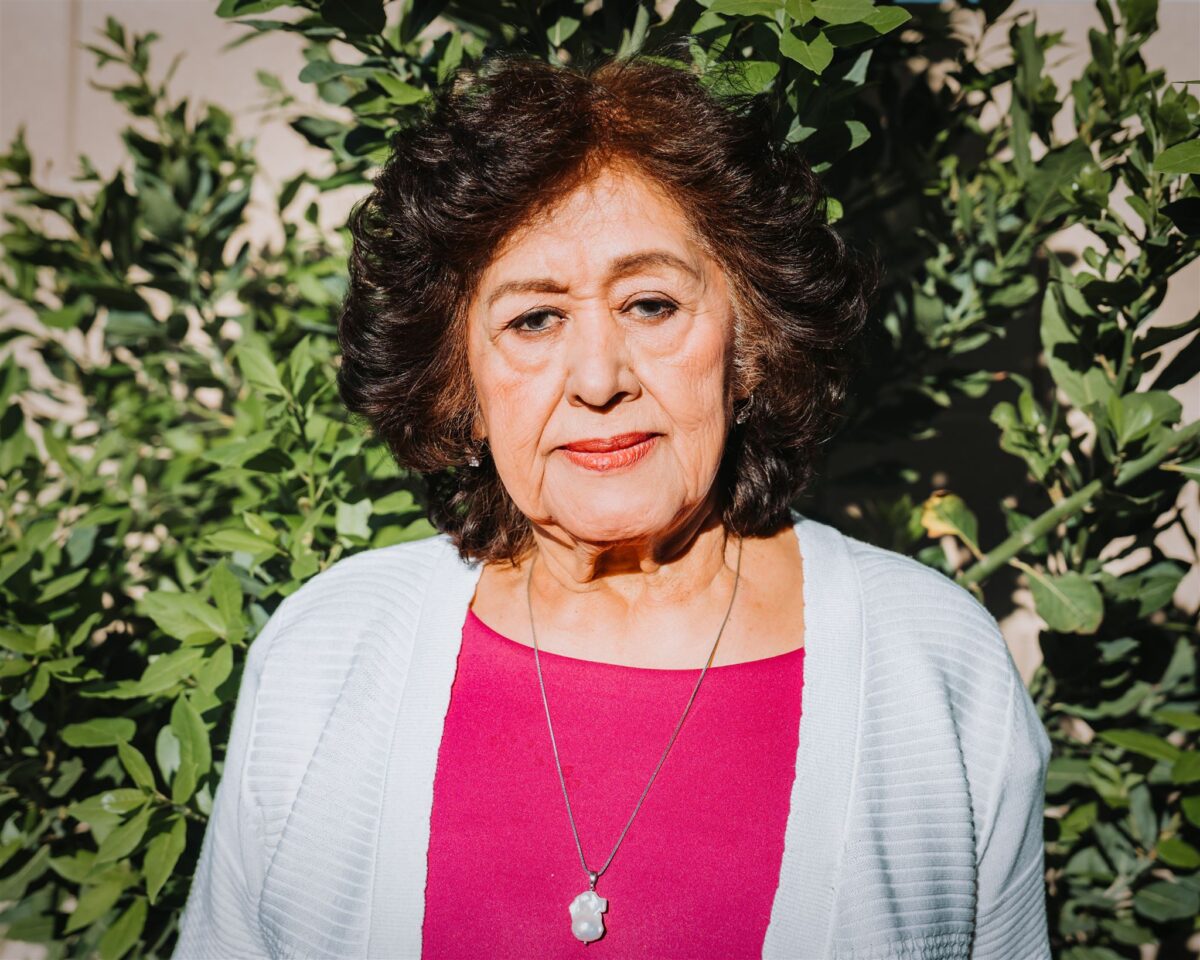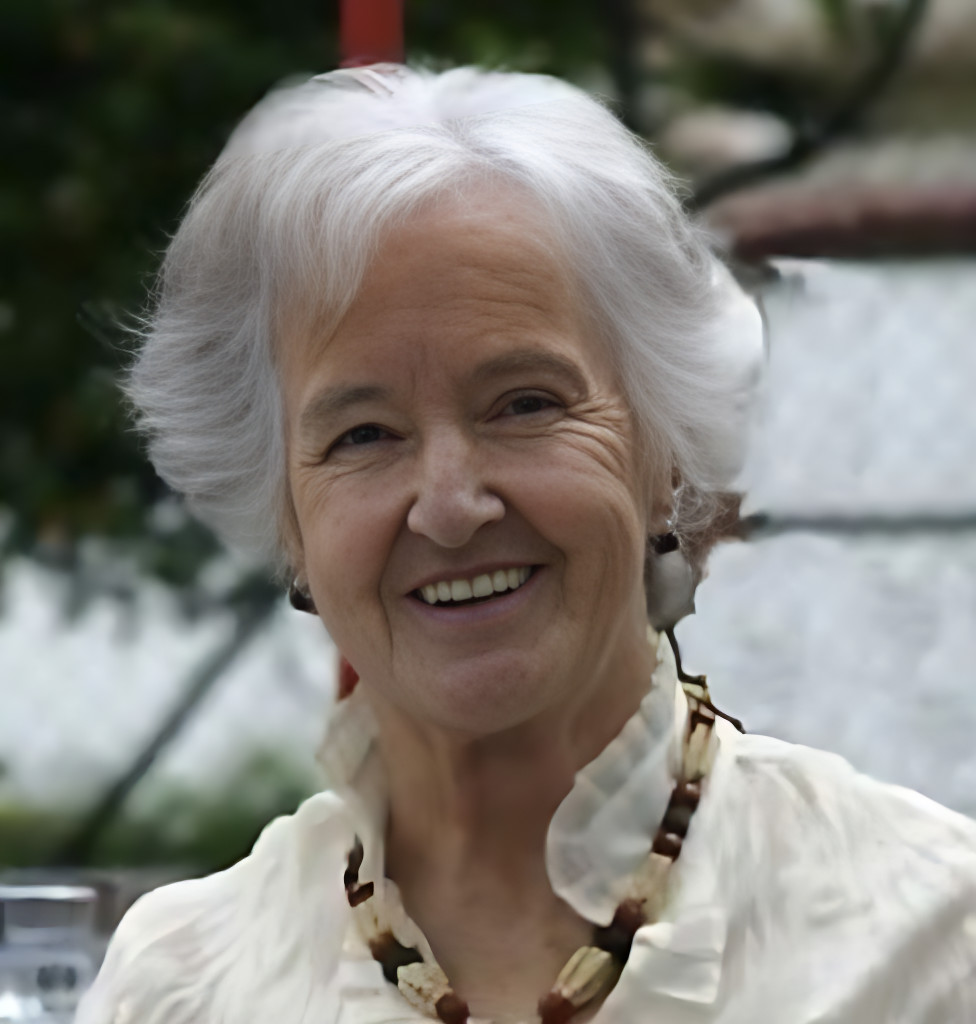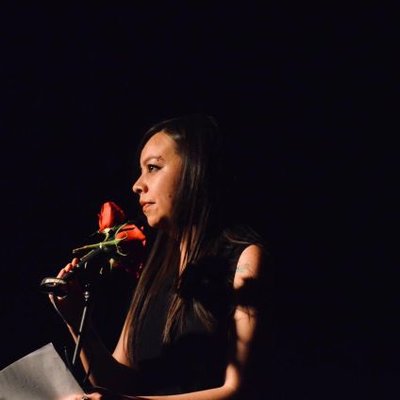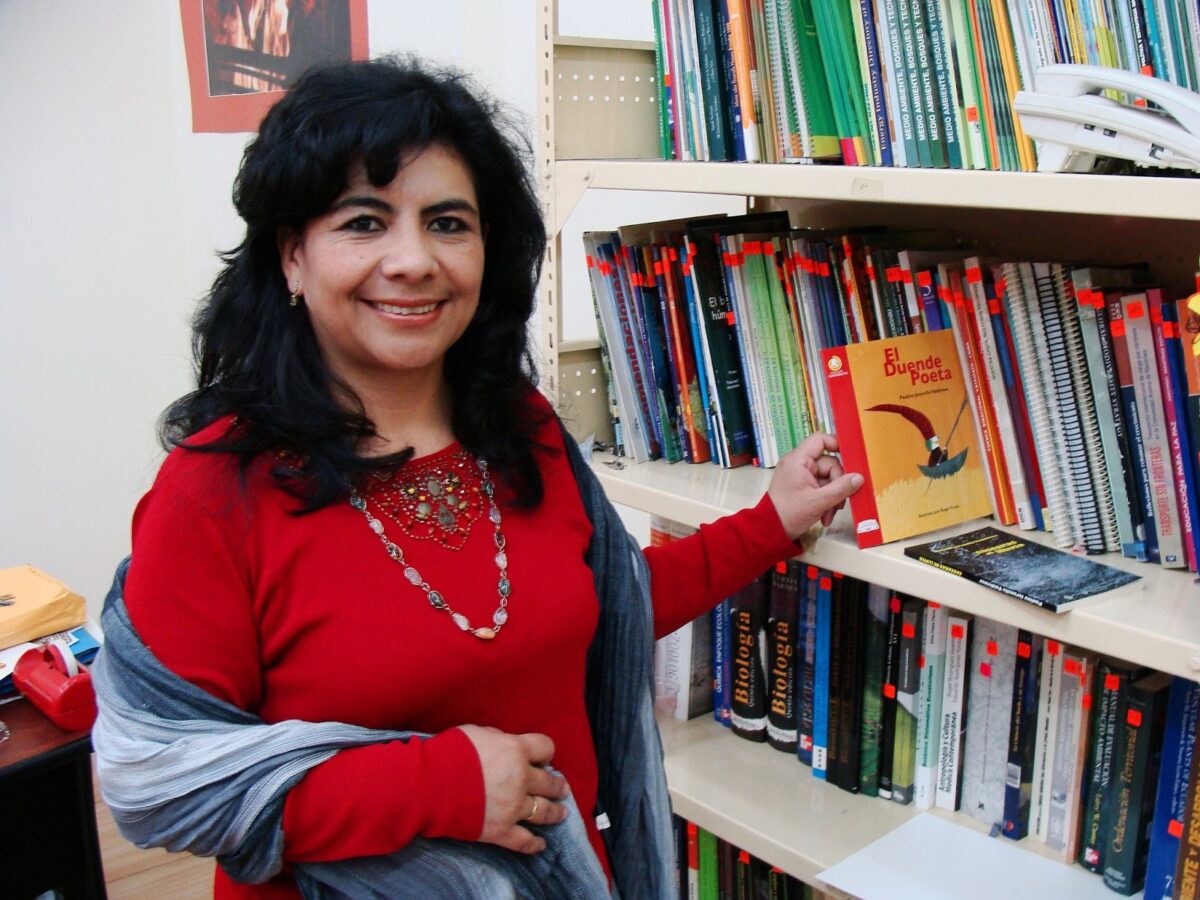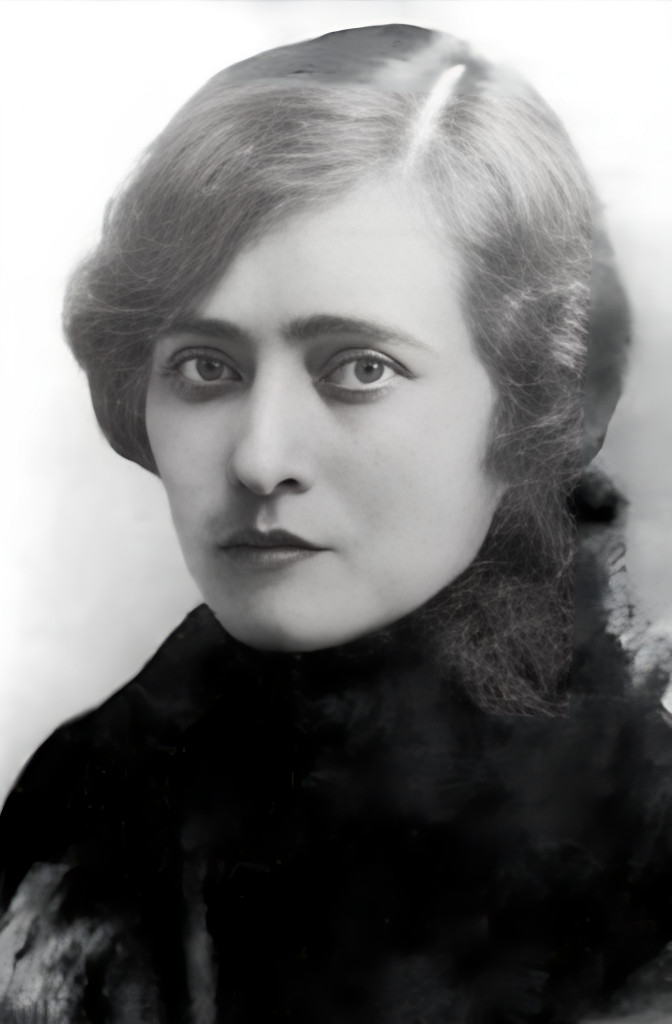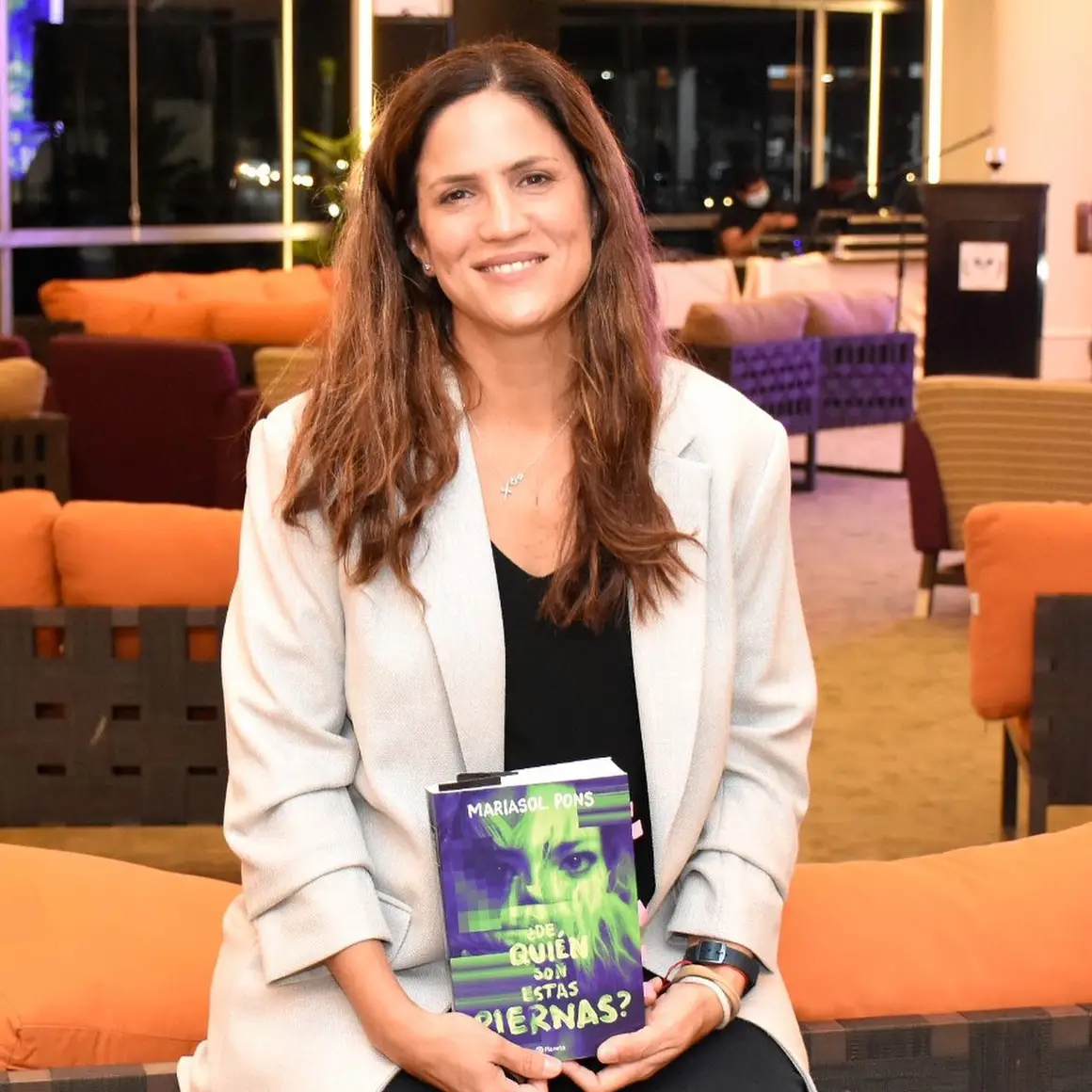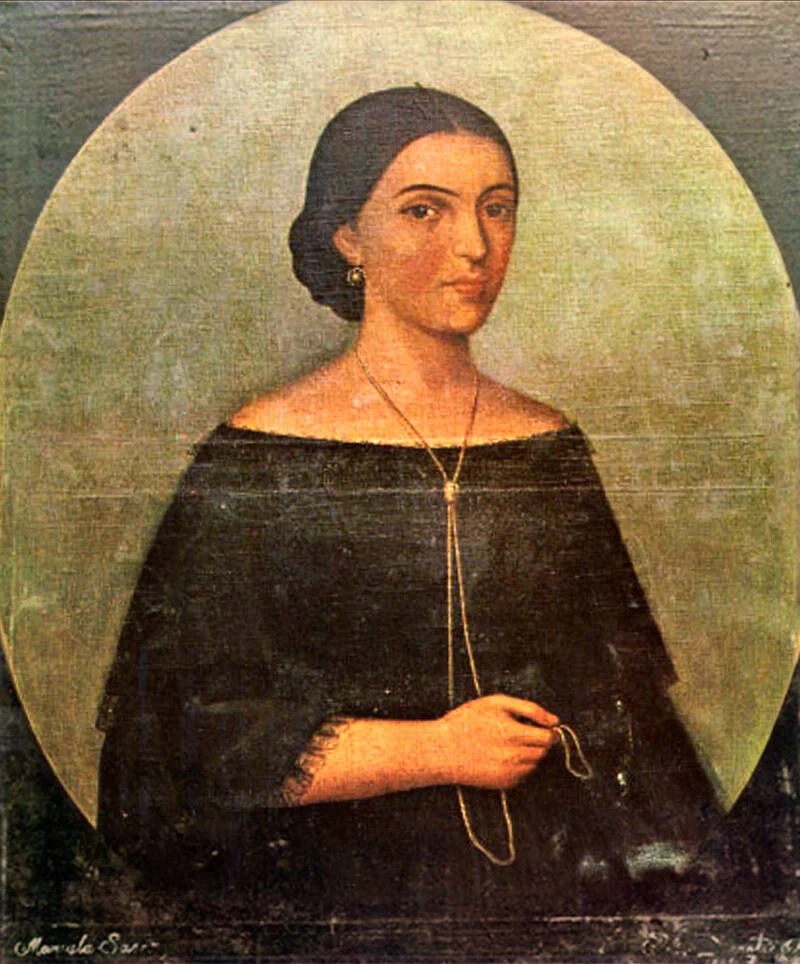Amanda Pazmiño Torres (Quito, Ecuador, 1993) is an Ecuadorian poet, writer, and teacher of language and English. She has been actively involved in cultural promotion and served as a Cultural Ambassador at the FIL Lima in 2012. In 2020, Pazmiño published her first poetry book, titled “Les hablaré de ti a todos los mares que fragüen un hogar en mis ojos,” which won the 12th edition of the Ileana Espinel Cedeño National Poetry Contest. She leads the ERGO International Cultural Group in Ecuador. She directs workshops focused on creative writing and personal growth, using writing as a tool for self-discovery. She is the director of the poetic writing workshop titled “Camino hacia el equilibrio: palabras que sanan” (Path to Balance: Healing Words). Her poems have been published in the newspaper El Ciudadano and several anthologies. Her poetry booklet “Recorrido de abismo” (Journey through the Abyss) was selected and published by the editorial imprint Despertar (Loja, 2017).
Continue reading “Amanda Pazmiño Torres”Category: Female writers
María Belén Muñoz
María Belén Muñoz Menéndez (El Carmen, Ecuador) is an Ecuadorian poet, writer, cultural promoter, professor, and Agricultural Engineer with a Master’s degree in Environmental Development. She has held positions such as the Coordinator of the Culture Department at the Universidad Laica Eloy Alfaro de Manabí, Campus “El Carmen,” where she contributed her expertise as a university teacher. Her talents and accomplishments led to her participation as part of the delegation of Ecuadorian writers at the prestigious International Book Fair in Cuba in 2011. Furthermore, she was actively involved with the International Art Group “Plaza XXI,” serving as the National Coordinator for the Ecuador Chapter. María Belén also played a significant role as the president of the House of Culture in the canton of El Carmen.
Continue reading “María Belén Muñoz”Máxima Angulo Borja
Máxima Angulo Borja, born in San Lorenzo, Esmeraldas, is an Ecuadorian poet. Her poetry is deeply rooted in personal experiences and activism, exploring themes of Afro-Ecuadorian identity. In 2018, Angulo published her book “Pininos Literarios” through the House of Ecuadorian Culture of Esmeraldas. This work delves into Afro-Ecuadorian culture, incorporating mythological characters such as La Tunda, El Riviel, and La Gualgura to emphasize their cultural significance. The book also pays tribute to the marimba, a traditional musical instrument in Esmeraldas. Angulo’s writing resonates with readers through its accessible language and vivid descriptions, shedding light on social realities and preserving ancestral customs. Currently residing in Muisne, a coastal town in the southwest of Esmeraldas province in northwestern Ecuador, Máxima Angulo Borja works as a literature and language teacher at Unidad Educativa Muisne.
Continue reading “Máxima Angulo Borja”Ingrid Bravo Ruiz
Ingrid Bravo Ruiz (Manabí) is an Ecuadorian poet and politician. Her debut poetry book, titled “El dolor de tu ausencia” (2014), is a remarkable testament to her poetic talent and introspective nature. Published when she was just 17 years old, this collection explores the depths of love, longing, and the profound impact of loss. Furthermore, Ingrid Bravo Ruiz holds the distinction of being the youngest poet featured in the poetry anthology titled “Antología poética de mujeres manabitas: voces de ternura al corazón del pueblo” (Poetic Anthology of Manabí Women: Voices of Tenderness to the Heart of the People), compiled by Vicenta Alarcón Castro in 2019.
Continue reading “Ingrid Bravo Ruiz”Libertad Regalado Espinoza
Libertad Regalado Espinoza (Jipijapa, April 26, 1956) is a Numerary Member of the National Academy of History of Ecuador. She is a pedagogue, writer, and researcher. She has written books, scientific articles, and works related to history and intangible cultural manifestations of the coastal peoples of Ecuador, particularly Manabí. Her notable works include “Manabí y su comida milenaria” (Manabí and Its Ancient Cuisine, 2008-2029), “Las hebras que tejieron nuestra historia” (The Threads that Wove Our History, 2010), “Identidad e indigenismo en Manabí” (Identity and Indigenism in Manabí, 2016), “Santa Ana madre del río Grande” (Santa Ana, Mother of the Great River, 2019), and “El amorfino manifestación cutltural del pueblo montuvio” (The Amorfino, Cultural Manifestation of the Montuvio People, 2019). She has worked on various consultancies and has participated in national and international congresses. In 2020, the National Assembly of Ecuador awarded her the “Dra. Matilde Hidalgo de Prócel” decoration.
Continue reading “Libertad Regalado Espinoza”Nancy Carlín Iglesias
Nancy Carlín Iglesias de Lujano (Esmeraldas, March 31, 1937) is an Ecuadorian poet. She called both Esmeraldas and Guayaquil home at different stages of her life. In 1960, she achieved recognition with the publication of a notable collection of poems titled “Este paisaje llamado día” [This Landscape Called Day], released by the Publications Department of the University of Guayaquil. Her exceptional talent as a poet led to the inclusion of her work in prominent anthologies such as “Espirales Poéticas,” “Presencia de la mujer ecuatoriana en la poesía,” “Cuaderno de Poesia,” and “Lirica Hispana” (Venezuela). During the late 1950s, Nancy contributed to newspapers or magazines such as La Hora, Nuevo Diario La Hora, La Nación (Diario Matutino), and Cronica Universitaria. Following her marriage in 1965, Nancy took a hiatus from publishing poetry, but her love for the art form remains undiminished. She continues to write poems for personal enjoyment, as well as for her family and on special occasions. She currently resides in Las Vegas, Nevada where she now goes by her married name, Nancy Lujano.
Continue reading “Nancy Carlín Iglesias”Teresa Crespo Toral
Teresa Crespo Toral (Cuenca, October 30, 1928 – Quito, February 15, 2014) was an Ecuadorian writer and a pioneer of children’s literature in her country. Her writings are considered classics of the genre and have been a source of inspiration for new generations of readers. From a young age, Teresa was deeply passionate about literature, and her love for the written word led her to compose her first poems. She authored several well-known books, including “Novena al Niño Jesús,” “Pepe Golondrina y otros cuentos,” “Mateo Simbaña,” which was studied at the University of Paris, and “Ana de los Ríos,” a book adapted into a film by the Convenio Andrés Bello. Teresa Crespo Toral received recognition through various awards, such as the Palma de Plata from the University of Cuenca and the first prize from the House of Ecuadorian Culture in Azuay, among others. She was married to the politician and historian Jorge Salvador Lara and had five children.
Issa Aguilar Jara
Issa Aguilar Jara (Cuenca, 1988) is an Ecuadorian poet and journalist. She has authored 3 critically-acclaimed poetry collections. Her debut poetry book, “Con M de mote se escribe Mojigata” (2018), fearlessly challenges the conservative aspects of her hometown with intimate and satirical verses, and delves into intimate themes, including her relationship with her father. Her second collection, “Poliamor town” (2020), delves into themes of love, diverse relationships, and the complexities of human connections. In 2022, her latest book, “Dos tragos de sinestesia o El diablo verde,” won the prestigious César Dávila Andrade National Poetry Prize, further solidifying her reputation as a notable voice in contemporary Ecuadorian poetry. Aguilar’s work has resonated with readers, particularly the younger generation, making her books popular in Cuenca.
Continue reading “Issa Aguilar Jara”Elisa Ayala González
Elisa Ayala González (Guayaquil, 1879) is considered the pioneer of short stories in the early decades of the 20th century in Ecuador. She grew up on a hacienda in the province of Los Ríos, where her father, Arcadio Ayala, a doctor, fostered her love for literature through his extensive library. Her writings were published in various Spanish, Uruguayan, Chilean, Argentinean, and Cuban magazines and newspapers. Her first short story, “La maldición,” was published in one of the international magazines to which her father subscribed. Ayala González’s works can be found in various anthologies, such as the “Antología de narradoras ecuatorianas,” by Miguel Donoso Pareja, and the “Antología básica del cuento ecuatoriano,” by Eugenia Viteri.
Paulina Jaramillo Valdivieso
Paulina Jaramillo Valdivieso (Loja, 1963) is an Ecuadorian poet, writer, and children’s literature author. She has authored six books, including “Mitos que madrugan al sol” and “Estatura de tiempo y convergencia,” which reflect both her personal experiences and Andean heritage. Her father, the poet Alfredo Jaramillo Andrade, was a significant influence in her life. Her work in literature has earned her several accolades, including recognition as a distinguished woman in literature from the Ecuadorian Committee for Cooperation with the Inter-American Commission of Women in 2009. Additionally, she has served as the coordinator of the Alfredo Mora Reyes Cultural Center for the past 15 years and hosts a cultural radio program called “Escenario.”
Continue reading “Paulina Jaramillo Valdivieso”Rosaura Emelia Galarza
Rosaura Emelia Galarza Heyman (Guaranda, 1877 – February 13, 1966) was an Ecuadorian teacher, journalist, writer, and a pioneer in the field of women’s publishing. She was the founder of Ondina del Guayas, a monthly women’s magazine of literature and variety, which was edited in Guayaquil between 1907 and 1910. In addition, Galarza and her sister Celina María Galarza founded the magazine Flora in Quito in 1917, which became the most important women’s magazine published in Quito. Galarza also created other magazines, including Primavera in Riobamba, Hacia El Ideal and Álbum Bolivarense in Guaranda. Along with Zoila Ugarte de Landívar, Victoria Vásconez Cuvi, and María Angélica Idrobo, all teachers at the Liceo Fernández Madrid, Galarza was a founder and director of the magazine Alas in 1934. Galarza left behind a legacy of promoting women’s education and empowerment through her writing and activism.
Continue reading “Rosaura Emelia Galarza”Victoria Vásconez Cuvi
Victoria Vásconez Cuvi (Latacunga, September 7, 1891 – Quito, May 29, 1939) was an Ecuadorian writer and feminist. She was part of a literary circle that included Zoila Ugarte de Landívar and Morayma Ofyr Carvajal. Vásconez Cuvi was an influential figure in her time, having served as a member of various organizations such as the Bolivarian Society and the International Commission of the Second Pan American Congress. Her works include “Ensayos Literarios,” “Problemas Educativos,” “Vida de Mariana de Jesús,” and “Actividades Sociales y Domésticas de la Mujer.” A school in Latacunga, Unidad Educativa Victoria Vasconez Cuvi, bears her name.
Continue reading “Victoria Vásconez Cuvi”Mariasol Pons
Mariasol Pons Cruz (Guayaquil, 1979) is an Ecuadorian novelist known for her captivating storytelling. Pons has authored several notable works, including “La Chica” (2013), “El libro de Olga” (2017), and “¿De quién son estas piernas?” (2021). Her debut novel, “La Chica,” delves into the world of drug trafficking, while “El libro de Olga” draws inspiration from Bram Stoker’s Dracula and explores complex characters in historical contexts. In “¿De quién son estas piernas?” Pons ventures into the realm of the future, challenging notions of identity and autonomy. Pons’ distinctive writing style and ability to engage readers have garnered recognition and acclaim in the literary community. Currently, she resides in Guayaquil and works as an editorialist for the newspapers Diario Expreso, Diario de Manabí, and La República.
Continue reading “Mariasol Pons”Tamara Mejía Molina
Tamara Mejía Molina (Guayaquil, 1987) is an Ecuadorian poet and art critic. She is the author of several books, including “Esto soy yo, Marakaramazov,” “Historia esculpida de Manuel Velastegui,” and “Últimos días de una herida,” and has written more than 20 art criticism articles for cultural newspapers. Molina’s work as a poet has brought her international recognition, and she has been invited to participate in various poetry festivals in Ecuador and abroad. In 2022, her poetry book “Últimos días de una herida,” was awarded the Ileana Espinel Cedeño Poetry Festival Award.
Continue reading “Tamara Mejía Molina”Manuela Sáenz
Manuela Sáenz Aizpuru de Thorne, commonly known as Manuelita Sáenz (Quito, Ecuador, during the Spanish Empire, December 27, 1797 – Paita, Peru, on November 23, 1856) was a noblewoman, political activist, and heroine in the fight for independence from Spain. Although she did not publish her writings during her lifetime, she did leave behind a significant amount of correspondence, including letters to Simon Bolívar, which provide valuable insight into her life and her role in the struggle for independence. Sáenz became involved in the revolutionary movement at an early age and was the lover and confidante of Simón Bolívar before and during the war for independence. She was instrumental in saving Bolívar’s life on at least one occasion, which led Bolívar to give her the title “Libertadora del libertador” [Liberator of the Liberator]. She accompanied him on many of his campaigns and was present at the Battle of Ayacucho, which marked the end of the Spanish presence in South America. After the war, Sáenz was granted the Order of the Sun or “Dame of the Sun” [Caballeresa del Sol] for her role in the struggle. However, her political activities and her unconventional personal life, which included several affairs, made her the target of criticism and condemnation by many in the conservative society of the time. She ultimately died in exile and poverty. Nevertheless, her legacy as a revolutionary and a feminist icon has endured, and she is remembered today as a symbol of the struggle for independence and women’s rights in South America. She has been the subject of many books in and outside of Ecuador.
Continue reading “Manuela Sáenz”
